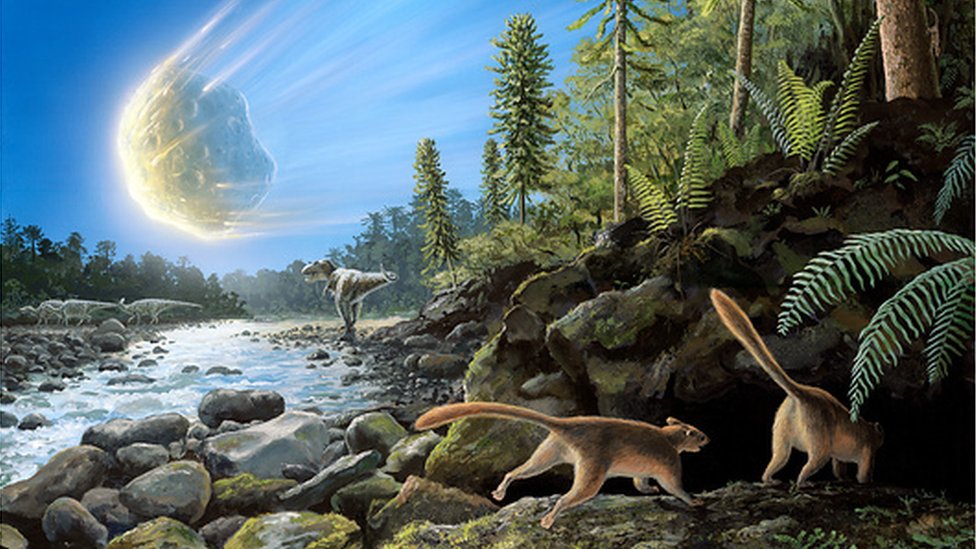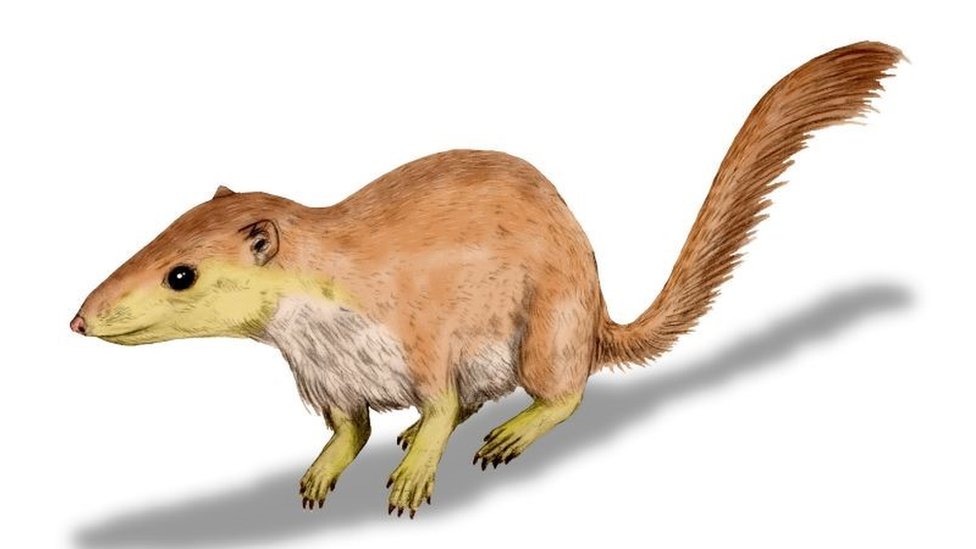- Published
 image copyrightRICHARD BIZLEY/SCIENCE PHOTO LIBRARY
image copyrightRICHARD BIZLEY/SCIENCE PHOTO LIBRARYMammals began to flourish well before the end of the dinosaur age, a new study has found.
The study saw hundreds of mammal fossil teeth analysed by the Universities of Southampton and Chicago.
Researchers said it contradicted the traditional view that the extinction of dinosaurs around 66 million years ago allowed mammals to evolve and thrive.
Mass extinction
Co-author Elis Newham, a PhD student at the University of Southampton, said: "The traditional view is that mammals were suppressed by the dinosaurs' success, and that they didn't really take off until after the dinosaurs went extinct."
But the report, published in the Proceedings of the Royal Society B, said that more and more early mammal fossils, including some hoofed animal predecessors the size of dogs, had been discovered in recent years showing greater diversity than first thought.
And far from benefitting from the demise of dinosaurs, mammals also appeared to have suffered greatly from the asteroid impact which wiped out more than half of all life on Earth.
 image copyrightNobu Tamura
image copyrightNobu TamuraLead author David Grossnickle, a PHD candidate at the University of Chicago, said the study was particularly relevant in light of the mass extinction the earth was currently undergoing.
He said: "The types of survivors that made it across the mass extinction 66 million years ago, mostly generalists, might be indicative of what will survive in the next hundred years, the next thousand."
- Published
 image copyrightRICHARD BIZLEY/SCIENCE PHOTO LIBRARY
image copyrightRICHARD BIZLEY/SCIENCE PHOTO LIBRARYMammals began to flourish well before the end of the dinosaur age, a new study has found.
The study saw hundreds of mammal fossil teeth analysed by the Universities of Southampton and Chicago.
The findings showed those with varied diets began to adapt 10 to 20 million years before the dinosaurs died out.
Researchers said it contradicted the traditional view that the extinction of dinosaurs around 66 million years ago allowed mammals to evolve and thrive.
Mass extinction
Co-author Elis Newham, a PhD student at the University of Southampton, said: "The traditional view is that mammals were suppressed by the dinosaurs' success, and that they didn't really take off until after the dinosaurs went extinct."
But the report, published in the Proceedings of the Royal Society B, said that more and more early mammal fossils, including some hoofed animal predecessors the size of dogs, had been discovered in recent years showing greater diversity than first thought.
And far from benefitting from the demise of dinosaurs, mammals also appeared to have suffered greatly from the asteroid impact which wiped out more than half of all life on Earth.
 image copyrightNobu Tamura
image copyrightNobu TamuraLead author David Grossnickle, a PHD candidate at the University of Chicago, said the study was particularly relevant in light of the mass extinction the earth was currently undergoing.
He said: "The types of survivors that made it across the mass extinction 66 million years ago, mostly generalists, might be indicative of what will survive in the next hundred years, the next thousand."

Δεν υπάρχουν σχόλια:
Δημοσίευση σχολίου